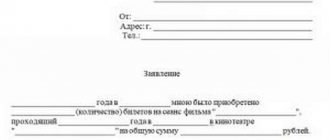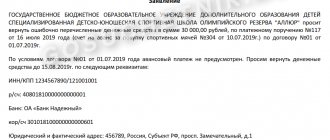In accordance with Art. 159.6 of the Criminal Code of the Russian Federation, theft or acquisition of rights to someone else’s property by deleting, entering, modifying or blocking computer information, as well as other interference in the functioning of information and telecommunication networks is interpreted as fraud, for which criminal liability is provided. But this does not stop criminals who create Internet resources with the aim of deceiving citizens and are constantly developing new algorithms for misappropriating their personal data and personal funds.
Internet fraud schemes
At the moment, the following schemes to deceive citizens are used in the virtual network:
- fake online store. In this case, the scammers take an advance payment for the product, but never send it to the buyer, and if they do send it, it is not the one indicated on the website (it may have a similar appearance, but differ in performance characteristics or be a cheaper Chinese analogue) ;
- phishing, when a website is created to capture payment card data. Having received the necessary information, attackers can use the owner’s money by gaining access to the card account;
- fictitious charity. On such an online resource for raising funds for those in need (seriously ill people, victims of natural disasters, etc.), photographs and documents of charitable organizations can be used, but to transfer funds, scammers indicate the details of their current account;
- sites containing content with malicious code that allows access to the user’s computer.
What numbers should you not answer calls from?
The activity of telephone scammers in Russia in 2021 is such that a safe option would be not to answer calls from unknown numbers at all (unless the specifics of your work provide for this), since the likelihood that this is a scammer or spam is very high.
Anton Kukanov
Head of the Center for Digital Expertise of Roskachestvo
– If the very fact of answering the call will not cause you any harm (the story about how you supposedly can’t answer with the word “yes” because they will steal your voice sample and then confirm the money transfer is just a horror story), then what you really shouldn’t do is This is to name your bank data - CVC codes and codes from SMS. No bank will ask them.
Where to go
A citizen who has encountered fraud on the Internet has the right to file a complaint:
- To a hosting company.
- Rospotrebnadzor.
- Directorate “K” of the Russian Ministry of Internal Affairs.
- The prosecutor's office.
- Court.
Important!
It will be much easier for victims to get their money back, close the fraudulent resource, and bring the perpetrators to justice if they act not individually, but collectively, while simultaneously filing complaints with regulatory authorities. If the site was created to take over the property of users, then its operation period will be relatively short, and then it will “move” to a new web address.
In this regard, the victim should complain about the scammers as soon as possible, especially if he was deceived and lost his money.
Scheme: scammers organized a collection of money for a sick child
Fraudsters often use the theme of helping sick children. For example, they can hack your friends’ accounts on social networks and send a message on their behalf that one of their little relatives is sick and they are now collecting money for treatment.
How to get my money back?
Tatyana Akhapkina believes that returning money in such a situation is almost impossible, since generally transfers are confirmed by a password from SMS and at the time of the client’s request, funds can already be withdrawn from accounts by fraudsters. According to the rules of payment systems, these transactions are not subject to revocation.
Despite this, Otkritie Bank suggests that affected clients file a complaint with the police.
Hosting company
If a citizen has enough knowledge to determine which hosting company supports the scam site, then he can try to get the resource closed by filing a claim with its customer support. This can be done through the feedback form, by email, or use any available contact to inform the provider about the illegal actions of his client to whom he provides his services (as a rule, such information can be obtained in the “About” section).
When drawing up a claim, it is important to succinctly describe what the violation of the law is (for credibility, you can even provide references to the norms of the current legislation of the Russian Federation) and provide relevant evidence (reviews of other victims, an extract from a card account about the transfer of funds, etc.).
Attention! Contacting a hosting company is relevant even if the user has encountered fraud on a foreign website, when the norms of Russian legislation cannot be applied.
Where to write about fraud
These are feedback forms where you can write about the fraud of a particular site. Thus, you don’t have to wait for the reaction of law enforcement agencies, but can quickly influence the fact that the scammer’s site is no longer accessible to the maximum number of people.
- Yandex AntiSpam - Russian search engine.
- Google is a global search engine.
- Baidu - Chinese search engine.
- Scumware.
- Siteadvisor.
- Badwarebusters.
- Cybertopcops.
- Trendmicro.
- Cybercrime Tracker.
- Web Inspector.
- Kasperky is an antivirus.
- Avira is an antivirus.
- DrWeb is an antivirus.
- Avast is an antivirus.
- Stopbadware.
- Abuse.
- Ministry of Internal Affairs - supported by the state.
- Roskomnadzor - supported by the state.
- Safe Internet League - supported by the state.
Rospotrebnadzor
Obvious fraud during service in an online store (for example, if the buyer received a counterfeit or not the product for which he paid) is a reason to contact Rospotrebnadzor, which is designed to protect consumer rights. Sometimes such violations are not obvious, therefore, if a consumer finds himself in such a situation, it is better to call the Service’s hotline number to clarify what actions of the store can be qualified as fraud and how best to act given the current circumstances. You can complain to Rospotrebnadzor:
- In writing, by sending a complaint against online scammers by mail to the address: 127994, Moscow, Vadkovsky lane, building 18, buildings 5 and 7. The document should be accompanied by materials proving the fact of making a purchase in the online store (for example, a statement on a bank account), and the seller’s refusal to fulfill its obligations.
- Orally at a reception with an authorized official of Rospotrebnadzor, which is held in accordance with the schedule at rospotrebnadzor.ru/feedback/index.php. At your appointment, it is better to take two samples of a claim drawn up according to the following example:
One copy is handed over to the employee of the Department (the second must be returned to the applicant with the date and stamp of acceptance). Reception by the management staff of Rospotrebnadzor is carried out strictly by appointment. You can get detailed information by phone or.
- Electronically via the form petition.rospotrebnadzor.ru/petition/oper_msg_create/. In order for such a complaint to be considered within the period prescribed by law, the user must correctly indicate his personal and contact information, explain what actions of the online store indicate fraud and provide additional materials that can be used to study the situation (this can be done through the “Select” function file"). The text should also indicate all information available to the user that will help identify the owners of the resource (web address, email, any contact information, etc.). Such a complaint will not be considered if it contains only a link to an Internet resource without explaining the circumstances and stating the user’s requirements.
If a citizen does not want to contact the Central Office, he should send an application to his territorial unit using the details on the page https://rospotrebnadzor.ru/region/structure/str_uprav.php.
Directorate “K” of the Ministry of Internal Affairs of Russia
One of the main tasks of Directorate “K” of the Ministry of Internal Affairs of Russia is to combat fraud committed using the Internet and electronic payment systems. In order to obtain a return of funds transferred to the attackers, as well as to block a fraudulent site where illegal activities are carried out, the user can complain to Management “K” in the following ways:
- At a personal reception with an authorized employee at the reception of the Ministry of Internal Affairs, which is located at: Moscow, st. Sadovaya-Sukharevskaya, building 11. Its operating hours can be found on the page https://xn--b1aew.xn--p1ai/help/Priemnaja_MVD_Rossii. You can obtain information about the procedure for considering accepted applications received by the Ministry of Internal Affairs by calling an automated telephone number. At the reception, it is better to submit a written complaint about online scammers, which will be transferred to the appropriate department.
- By letter by Russian Post, sending a written request to the address: 129090, Moscow, st. Sadovaya-Sukharevskaya, building 11. Department “K” should be indicated as the addressee, and it is better to send it by letter with a notification to ensure that it has been delivered to the recipient. In the document compiled, it is important to indicate all the necessary details (web addresses) and any other available information (bank account number where the money was sent, electronic wallet, mobile phone, etc.) that will help identify the owners of the resource.
- Online through a special form on the website of the Ministry of Internal Affairs of the Russian Federation xn--b1aew.xn--p1ai/request_main, where you can indicate exactly to whom the complaint is addressed. The procedure for submitting such an appeal is not particularly different, so the user must accurately indicate his personal data, choose the method of receiving a response and describe as accurately as possible the circumstances that prompted him to seek protection of his rights. In the “Text of appeal” field, you must provide the address of the fraudulent site and any information that can be used to analyze the situation.
Important! A citizen can submit an appeal to his territorial division of the Ministry of Internal Affairs, since in any case it will be transferred to the final recipient - to Department “K”.
You can find out the necessary information to file a complaint with the territorial authority on the website xn--b1aew.xn--p1ai/contacts/sites.
Prosecutor's office
Fraud, regardless of the form of such activity, is subject to criminal liability, as indicated by certain provisions of the current legislation. In this regard, the user has the right to complain about online scammers to the Prosecutor’s Office even if the claims submitted to the Office “K” and Rospotrebnadzor did not bring the desired result. It can be done:
- In writing, by sending the completed document to the address of your territorial unit, details of which can be found on the page gov.ru/contacts/map/?DISTR=&SUBJ=. Due to the fact that such an appeal may become the basis for initiating a criminal case, the application should clearly describe the situation, indicate the details of the parties to the conflict (for example, you can write the number of the electronic wallet to which the funds were transferred) and the website address. The envelope can also contain additional materials that can be used during the investigation.
- At a personal reception held by the prosecutors on duty. You can obtain information about their operating hours directly from your territorial unit, where you can also make an appointment if this is a prerequisite for submitting an application in person. During the visit, you will need to present your passport, provide known information about the fraudulent site and, if possible, provide evidence that will allow you to conclude that illegal activity is taking place.
- Online by submitting an electronic complaint to your territorial unit. But this can only be done if such a function is available to residents of the region (as a rule, this option is located on the right in the vertical menu). In particular, this opportunity is provided to residents of Moscow, who can submit claims electronically via the link mosproc.ru/ipriem/iemail.php. After describing the facts that, in the opinion of the victim, indicate obvious fraud, it is worth attaching to the form any electronic documents that indicate criminal activity by the owners of the Internet resource.
Court
The main goal pursued by citizens who are faced with online fraud is to recover lost funds, which is primarily relevant for situations with online stores, where fakes and counterfeits are sold under the guise of high-quality or original products. But the initiator of the lawsuit may not only be the applicant who has suffered certain financial losses. If he previously contacted the Prosecutor's Office, then after studying the facts provided, it can act as the prosecution in a criminal case. But even in this case, a citizen can file a claim for monetary compensation for his losses (including moral damage).
Fraudsters can only be sued if their identities have been established during the investigation. This is the main problem of such processes: not being able to establish who is carrying out illegal activities, the Prosecutor's Office cannot hold them accountable, and the victim is deprived of the opportunity to recover monetary compensation or moral damages.
Punishment for fraud: list of articles of the Criminal Code of the Russian Federation
Illegal activities related to the withdrawal of funds through deception fall under a number of articles.
- Art. 159. Fraud
- Art. 182. False advertising that does not correspond to the truth
- Art. 171. Illegal business activity.
- Art. 200. Deception of consumers
- Art. 199. An entrepreneur evades paying taxes.
Using the list of these articles, you can put psychological pressure on the scammer and this will be a powerful argument through which you can get your money back.
The legislative framework
To file a complaint against online scammers, you should rely on the following legislation:
- Civil Code of the Russian Federation N 14-FZ dated January 26, 1996. (as amended on March 28, 2017).
- Criminal Code of the Russian Federation N 63-ФЗ dated June 13, 1996. (as amended on July 18, 2017).
- Federal Law "On the Prosecutor's Office of the Russian Federation" N 2202-1-F dated January 17, 1992. (as amended on July 29, 2017).
- Federal Law “On Police” No. 3-FZ dated 02/07/2011. (ed. dated July 29, 2017).
- Federal Law “On the procedure for considering appeals from citizens of the Russian Federation” No. 59-FZ dated May 2, 2006. (ed. 03.11.2015).
Punishment for Internet scammers
Depending on the value of the stolen property and what circumstances of the theft took place, punishment is imposed: a fine, or restriction of freedom, or forced labor, or imprisonment with a fine.
Article 159.6 of the Criminal Code of the Russian Federation (Criminal Code of the Russian Federation), as well as Articles 272 – 274 of the Criminal Code of the Russian Federation regulate crimes in the field of computer information related to violation of rules in information networks, the spread of viruses, etc. For clarity, I will partially quote the beginning of Article 159.6 of the Criminal Code:
Fraud in the field of computer information, that is, the theft of someone else’s property or the acquisition of rights to someone else’s property by entering, deleting, blocking, modifying computer information..., is punishable by a fine in the amount of up to one hundred twenty thousand rubles or in the amount of the wages or other income of the convicted person for the period up to one year, or compulsory labor for a term of up to three hundred sixty hours, or correctional labor for a term of up to one year, or restriction of freedom for a term of up to two years, or forced labor for a term of up to two years, or arrest for a term of up to four months...









